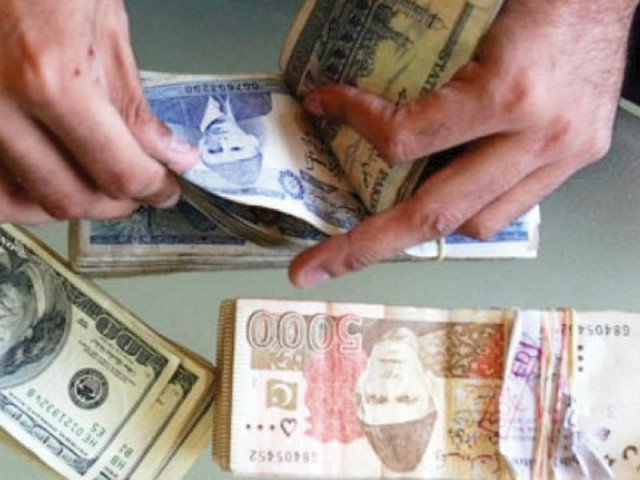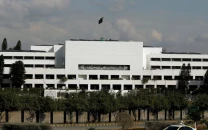Managing finances: PML-N govt set to repeat history
A bridge loan from Saudis is meant to buy more time, but may do the opposite.

A bridge loan from Saudis is meant to buy more time, but may do the opposite. PHOTO: FILE
A new government has been elected precariously close to budget season. Ishaq Dar is about to be sworn in finance minister, and it is glaringly obvious that the new administration will need to approach the International Monetary Fund for a bailout, but the government seems to be dithering, hoping for aid from wealthy allies. The year is 2008. Or 2013, since the incoming administration seems determined to repeat the mistakes of previous governments.
In virtually every interview to the media since the election, Sartaj Aziz, the incoming adviser to the prime minister on finance and foreign affairs, has made it clear that the government does not want to approach the IMF for at least three to four months. And the Pakistan Muslim League Nawaz has leaked to the Financial Times that they are seeking up to $5 billion from Saudi Arabia as a bridge loan to allow the government time to implement its own agenda before approaching the IMF.
Sources familiar with the matter say that the PML-N is seeking a 10-year, low-interest-rate loan from Saudi Arabia and plans to use the proceeds almost entirely to pay off the existing stock of inter-corporate circular debt in the energy sector. Once the loan is received by Pakistan, it would then take about a month for the government to halve power cuts in the country, at least partially helping them fulfil their campaign promise of taking immediate action to resolve the energy crisis.

There are, however, at least three major issues with this approach. The first is that it hinges far too heavily on Saudi generosity. Riyadh has been known to rebuff many previous requests by Pakistan for assistance and the amount currently being sought is far higher than anything Islamabad has ever asked before.
Granted, the Sharifs have strong ties to Saudi Arabia, but the kingdom may be hesitant to hand over that high an amount to Pakistan, which even under the PML-N has had a poor record of managing its money properly. (That sordid history, by the way, is why China has stopped providing any form of budgetary support to Pakistan.)
The second problem is the damage that might happen in the wait before Islamabad eventually does enter into an IMF bailout programme. In 2008, for instance, the government was banking on US financial support to come through before finally being forced to turn to the IMF in the last quarter of that year. But by then, it was too late.
Depositors panicked at the sight of the government’s dithering and lack of a serious plan, and there was massive run on the currency, and the rupee plunged from Rs61.81 to the dollar at the start of the year to Rs79.32 at the end of it, a drop of over 28%. Inflation hit a record of 25.8% in August of that year as the government was forced to cut its unsustainable subsidies. That inflation spike sent interest rates soaring, precipitating a financial sector crisis that the banks have only just recovered from.
If the Saudis give anything less than $2 billion, that is effectively the scenario Pakistan will face once again. That is a deeply unpleasant thought, because it would mean wasting a whole decade going around the same crisis which just keeps getting bigger and bigger.
But the single biggest problem with this approach is the “what next” question. Suppose the Saudis are generous enough to give the whole $5 billion requested (unlikely). Given the pace at which circular debt accumulates, we will be back to unsustainably high levels of debt within a year or so.
In effect, the PML-N is giving itself a one-year window in which to work a miracle. To their credit, they have already started work on implementing a plan, but it seems highly unlikely that they will be able to meaningfully bring down the rate at which circular debt is rising within that period. At which point, we will just have a whole lot more debt and not much to show for it.
The Saudi loan, in effect, is less a way to buy time and more like a ticking time-bomb. The IMF route is likely to be more painful, but serious negotiations with the Washington-based lender tend to calm the markets, and buy more time. The PML-N would be wise not to repeat the same mistake.
Published in The Express Tribune, May 26th, 2013.



















COMMENTS
Comments are moderated and generally will be posted if they are on-topic and not abusive.
For more information, please see our Comments FAQ